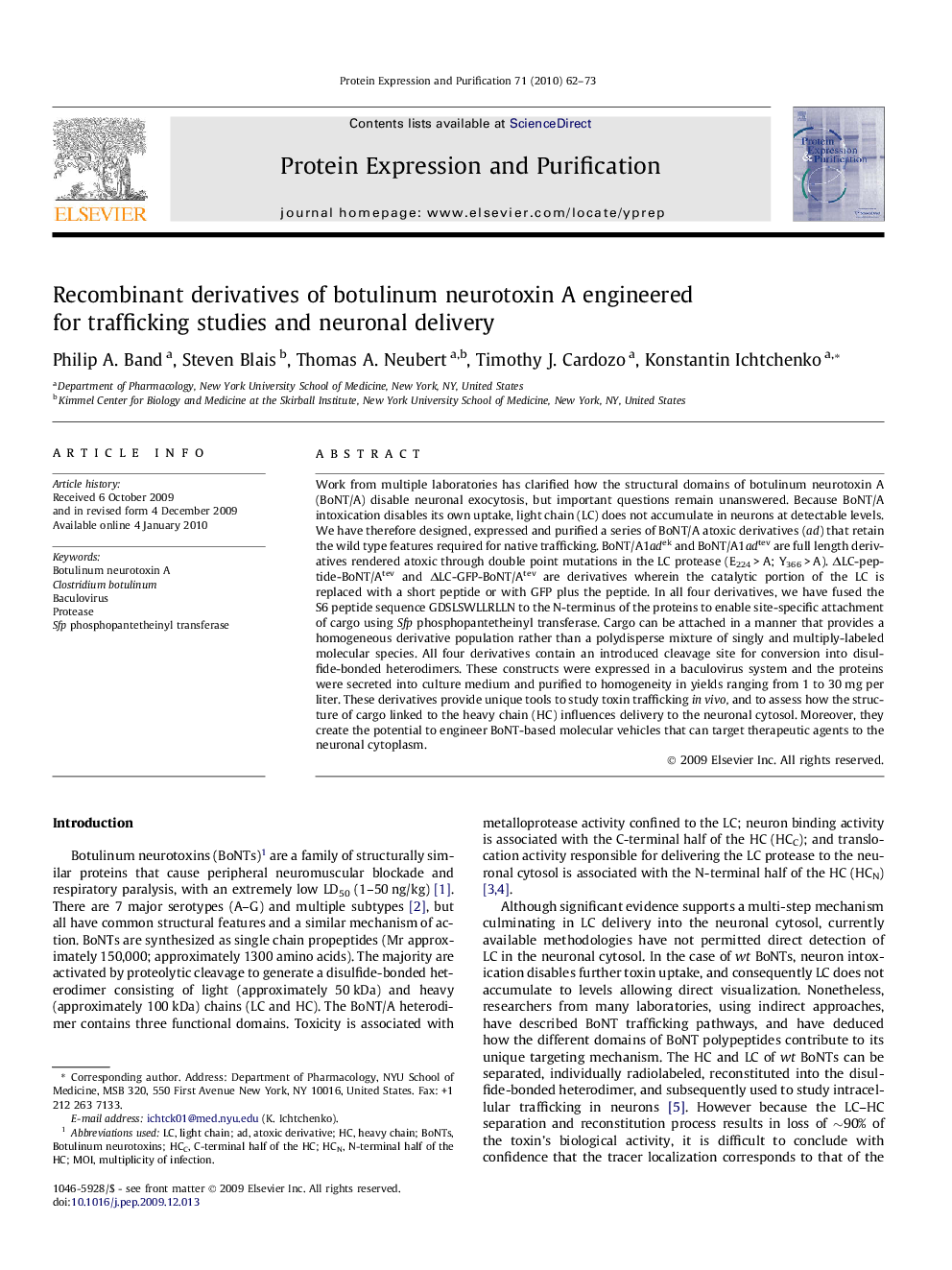| Article ID | Journal | Published Year | Pages | File Type |
|---|---|---|---|---|
| 10843383 | Protein Expression and Purification | 2010 | 12 Pages |
Abstract
Work from multiple laboratories has clarified how the structural domains of botulinum neurotoxin A (BoNT/A) disable neuronal exocytosis, but important questions remain unanswered. Because BoNT/A intoxication disables its own uptake, light chain (LC) does not accumulate in neurons at detectable levels. We have therefore designed, expressed and purified a series of BoNT/A atoxic derivatives (ad) that retain the wild type features required for native trafficking. BoNT/A1adek and BoNT/A1adtev are full length derivatives rendered atoxic through double point mutations in the LC protease (E224Â >Â A; Y366Â >Â A). ÎLC-peptide-BoNT/Atev and ÎLC-GFP-BoNT/Atev are derivatives wherein the catalytic portion of the LC is replaced with a short peptide or with GFP plus the peptide. In all four derivatives, we have fused the S6 peptide sequence GDSLSWLLRLLN to the N-terminus of the proteins to enable site-specific attachment of cargo using Sfp phosphopantetheinyl transferase. Cargo can be attached in a manner that provides a homogeneous derivative population rather than a polydisperse mixture of singly and multiply-labeled molecular species. All four derivatives contain an introduced cleavage site for conversion into disulfide-bonded heterodimers. These constructs were expressed in a baculovirus system and the proteins were secreted into culture medium and purified to homogeneity in yields ranging from 1 to 30Â mg per liter. These derivatives provide unique tools to study toxin trafficking in vivo, and to assess how the structure of cargo linked to the heavy chain (HC) influences delivery to the neuronal cytosol. Moreover, they create the potential to engineer BoNT-based molecular vehicles that can target therapeutic agents to the neuronal cytoplasm.
Related Topics
Life Sciences
Biochemistry, Genetics and Molecular Biology
Biochemistry
Authors
Philip A. Band, Steven Blais, Thomas A. Neubert, Timothy J. Cardozo, Konstantin Ichtchenko,
